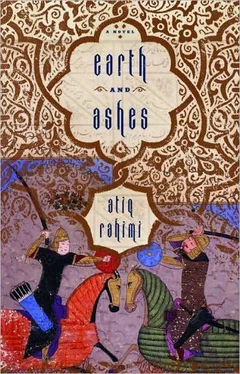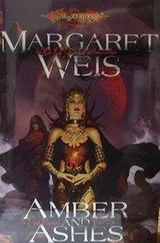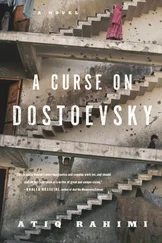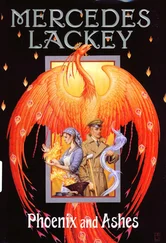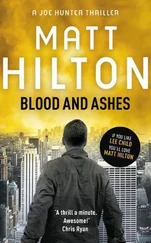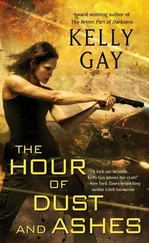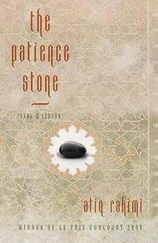‘No, I want water, water!’
You let the apple drop to the ground, heave yourself up, grab Yassin with one hand and the bundle with the other, and hurry off towards the shop.
The shop is just a small wooden stand with three mud walls. At the front, four uneven planks form a window that is covered with plastic sheeting. Behind a small opening sits a black-bearded man. His shaven head is hidden by an embroidered cap and he wears a black waistcoat. A large pair of scales almost completely obscures his thin torso. He is bent over a book. At the sound of your footsteps, he raises his head and adjusts his spectacles on his nose. Despite his pensive expression, his eyes, magnified by the thick lenses, are strikingly bright.
He greets you with a kind smile and asks, ‘Back from the mine?’
You spit your naswar on to the ground and respond meekly.
‘No, my good brother, we haven’t gone to the mine yet. We’re waiting for a vehicle to pass. My grandson is very thirsty. Would you be kind enough to give him a little water…’
The shopkeeper pours some water from his jug into a copper cup. On the back wall of the shop there’s a large painting: behind a large rock, a man holds the Devil fast by the arm. Both of them are watching an old man who has fallen into a deep pit.
The shopkeeper hands the cup to Yassin and asks, ‘Have you come far?’
‘From Abqul. My son works in the mine. I am going to see him.’
You keep your eye on the guard’s hut.
‘It was a bad state of affairs over there, wasn’t it?’
The shopkeeper tries to begin a conversation but you keep your eyes fixed on the hut. You remain silent, as if you haven’t heard anything. If you are honest, you did not want to hear. Or rather, you don’t want to answer. Come on, brother, let Dastaguir be!
‘I hear the Russians reduced the whole village to smoke and ashes last week. Is it true?’
You’ll have no peace. You came for water, not tears. A mouthful of water, nothing more.
Brother, by the grace of God, don’t pour salt on our wounds.
What is this, Dastaguir? Moments ago your heart was heavy. You wanted to talk to anyone about anything. Now, here is someone who’ll listen to what lies in your heart, whose look alone is a comfort. Say something!
Without taking your eyes off the hut, you answer, ‘Yes, brother. I was there. I saw everything. I saw my own death…’
You fall silent. If you get involved in a conversation, you might forget about the vehicle.
The shopkeeper takes off his glasses and pokes his head out the window to see what interests you so much. As soon as he sees the hut, he understands. He sits back behind his large pair of scales.
‘My good brother, it’s still too early. A vehicle always comes by around two. You’ve got two hours ahead of you.’
‘At two? Why didn’t the guard say anything?’
‘Probably because he isn’t too sure himself. It’s not his fault. The cars and lorries come at odd times. Besides, what’s on time in this country that transport should be? These days…’
‘Grandfather, jujube fruits!’
Yassin’s words interrupt the shopkeeper. You take the copper cup from Yassin’s hands. He hasn’t finished it.
‘First drink your water.’
‘I want jujubes, jujubes!’
You put the cup to Yassin’s mouth and gesture impatiently for him to finish. Yassin turns his head away and continues in a voice choked with sobs, ‘Jujubes! Jujubes!’
The shopkeeper reaches out through the shop window and passes Yassin a handful of fruit. The child grabs it and sits down at your feet. And you, cup of water in hand, try to keep your temper. God help me. You sigh.
‘That child will make a madman of me.’
‘Don’t say that, father. He’s a child. He doesn’t understand.’
You sigh again, more deeply than before and say, ‘I’m afraid, brother, the problem isn’t that he can’t understand… The child has gone deaf.’
‘May God heal him! What happened?’
You finish the remainder of your grandson’s water and continue, ‘He lost his hearing during the bombing of the village. I don’t know how to make him understand. I speak to him the same as before. I still scold him… It’s just habit…’
As you talk, you pass the copper cup back through the window. The man takes it and looks sympathetically at Yassin, then at you, then at the empty cup… He prefers silence. Like a ghost, he withdraws into the shop. His hand reaches for a small bowl on one of the wooden shelves. He fills it with tea and hands it to you.
‘Take a mouthful of tea, good brother. You’re exhausted. You still have plenty of time. I know all the vehicles that go to the mine. If one comes, I’ll tell you.’
You glance over at the guard’s hut and, after a moment’s hesitation, take the bowl of tea, saying, ‘You’re a man with a good heart. May your forbears rest in peace!’
The sound of your sipping brings a kind smile to the shopkeeper’s lips.
‘If you’re feeling cold, come inside; your grandson also looks cold.’
‘God bless you, brother, it’s fine here. There’s sun. We don’t want to disturb you any more. What if a car were to come. I’ll drink my tea and we’ll be gone.’
‘Father, I just told you. I’ll let you know if a car comes. You can see them pass from here. Now, if you don’t want to stay, that’s another story.’
‘I swear to you, brother, it’s not a matter of wanting or not wanting. That guard isn’t the kind of man to make a car wait.’
‘Dear father, it takes a long time for him to issue a pass and then open the barrier. And he isn’t a bad man, that guard. I know him. He comes here a lot. It’s sorrow that has ruined him.’
The man falls silent. He puts a cigarette into the corner of his mouth and lights it. Then he goes on:
‘You know, father, sorrow can turn to water and spill from your eyes, or it can sharpen your tongue into a sword, or it can become a time bomb that, one day, will explode and destroy you… The sorrow of Fateh the guard is like all three. When he comes to see me, his sadness flows out in tears. If he remains alone in his hut, it becomes a bomb… When he steps out of the hut and sees others, his sorrow turns itself into a sword and he wants to…’
You don’t hear the rest of the shopkeeper’s words. Your thoughts pull you inwards, to where your own misery lies. Which has your sorrow become? Tears? No, otherwise you’d cry. A sword? No, you haven’t wounded anyone yet. A bomb? You’re still living. You can’t describe your sorrow; it hasn’t taken shape yet. It hasn’t had a chance to show itself. If only it wouldn’t take shape at all. If only it would fall silent, be forgotten… It will be so, of course it will… As soon as you see Murad, your son… Where are you Murad?
‘Good father, where have you drifted off to?’
The shopkeeper’s question brings you back from your interior journey. You reply humbly.
‘Nothing, brother, you were talking of sorrow…’
You finish the tea in one gulp and give the empty bowl back to the shopkeeper. You pat your pockets, take out your box of naswar and put a pinch into your mouth. Then you go and sit at the base of one of the wooden posts propping up the shop’s corrugated-iron roof. Yassin plays silently with the stones from the jujube fruit. You take him by the arm and pull him to your side. You want to say something but the sound of footsteps silences you. A man in military uniform approaches. ‘ Salaam, Mirza Qadir.’
‘ Waleykom Salaam, Hashmet Khan.’ The soldier asks for a pack of cigarettes and engages Mirza Qadir in conversation.
At your feet, your grandson is busy playing with an ant attracted by the naswar you have spat out on to the ground. Yassin mixes the naswar, the earth and the ant together with a jujube stone. The insect squirms in the green mud.
Читать дальше
